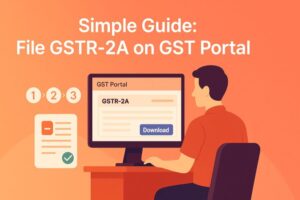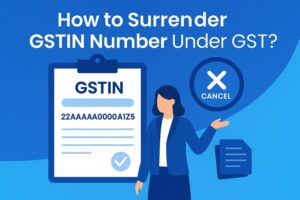TCS on Sale of Scrap under GST Section 206C
- 3 Jul 25
- 10 mins

TCS on Sale of Scrap under GST Section 206C
Key Takeaways
- TCS on sale of scrap is charged at 1% under Section 206C of the Income Tax Act, and GST rates vary from 3% to 18% based on scrap type.
- From April 1, 2025, Sections 206C(1H) and 206C(1G) are omitted, removing TCS on high-value goods sales and educational remittances via loans.
- Only eligible sellers (business turnover > ₹1 crore or profession > ₹50 lakh) must collect TCS and issue Form 27EQ for scrap transactions.
- Failure to file TCS returns on time results in a daily penalty of ₹200, while non-filing can lead to fines between ₹10,000 and ₹1,00,000.
- Scrap buyers and sellers must maintain proper documentation and classification to stay compliant under updated TCS-GST frameworks.
Tax Collected at Source or TCS is an important tool to keep track of and to control big amounts in business transactions. Section 206C of the Income Tax Act of 1961 mentions that TCS is to be charged on sale of certain goods, including scrap. This guide reviews TCS applicability, rates on scraps, and compliance procedures.
It highlights TCS on sale of scrap under GST guidelines so that businesses are tax-compliant and avoid penalties. Such businesses must be particularly aware of Tax Collected at Source obligations throughout their transaction reporting.
So, keep reading this guide to know everything in detail.
TCS Rates for certain goods
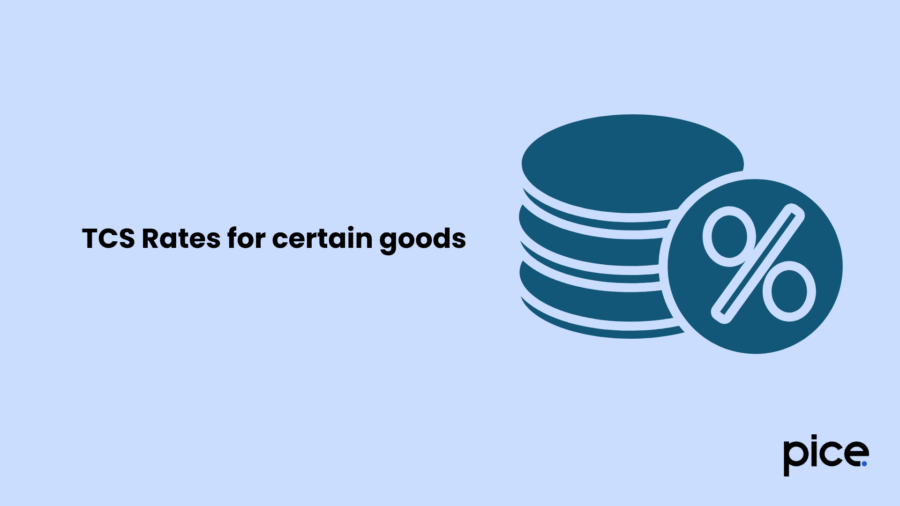
Section 206C in the Income Tax Act 1961 has several taxed goods. The detailed table below states the tax rate for these items:
| Nature of Goods | Tax Rate |
| Alcoholic liquor for human consumption, Scrap, and Natural Minerals, either coal, lignite, or iron ore | 1% |
| Timber obtained under a forest lease, Timber obtained by any mode other than under a forest lease, and any other forest produce not being timber or tendu leaves | 2.5% |
| Tendu leaves | 5% |
The rate of TCS on sale of scrap under GST, as mentioned in the table above, is 1% in the current tax regime. The updated rates for scrap material ensure more clarity for buyers and sellers engaged in the trade of scrap across industries. In the new GST tax regime that was implemented on 1st April 2025, the GST rates for different kinds of scraps are as follows:
| Scrap Items | Rate of Tax of Scrap Material |
| Waste and scrap of precious metal or of metal clad with precious metal | 3% |
| Plastic Waste, Rubber Scrap, Hard Rubber Scrap, and Paper Waste | 5% |
| Scrap of Polyurethane, Other Plastic Scrap, Iron Scrap, Non-Ferrous Metal Scrap | 18% |
Please note that the scrap sale attracts a specific TCS rate, which depends on the type of scrap and its classification under current tax rules.
Non-applicability of TCS u/s 206C (1)
The following table shows the items removed from TCS in the new GST regime. This move primarily supports businesses that rely on scrap sales for trading purposes or procurement needs.
| Section Name | Items | TCS Rate in Old Regime (Till 31st March 2025) | TCS Rate in New Regime (From 1st April 2025) |
| 206C(1G) | LRS- Remittance out of education loan | 5% | Removed (Omitted) |
| 206C(1H) | TCS collection for the sale of goods | 1% | Removed (Omitted) |
TCS Applicability on Remittances under LRS (Section 206C(1G))
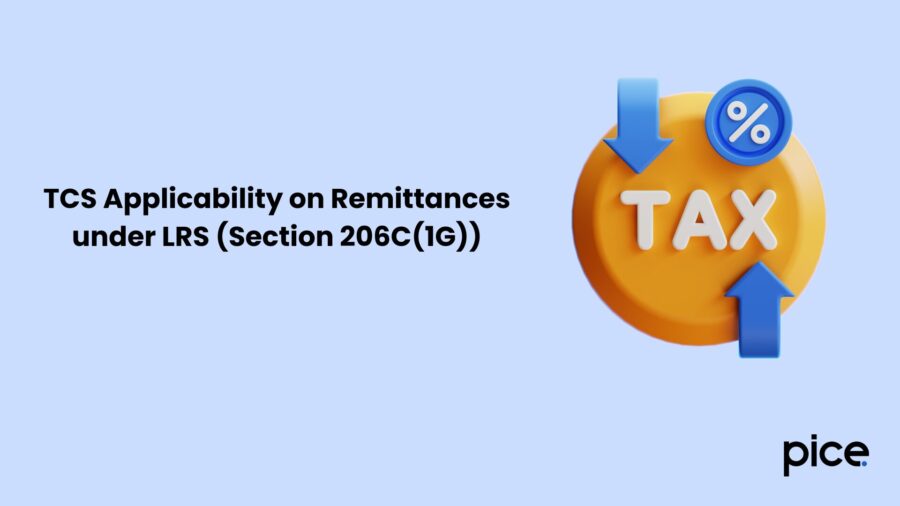
The government has changed TCS rules for money sent abroad under the 'Liberalised Remittance Scheme (LRS)', starting April 1, 2025. Individuals can now remit up to ₹10 lakh without triggering TCS, up from the previous ₹7 lakh limit. This change benefits people sending money overseas for education, treatment, or personal needs.
The TCS rate remains the same even after increasing the threshold for LRS remittances. The government aims to ease the financial load on families dealing with foreign education and healthcare costs. These changes improve compliance clarity and offer practical relief for frequent remitters.
While this doesn't affect TCS on sale of scrap under GST, it reflects broader tax simplification efforts. Businesses should stay updated on such tax changes to understand how they align with future compliance shifts.
The government is slowly reducing the burden of unnecessary tax overlaps on common taxpayers. While these changes do not affect TCS on manufacturer sale scrap, they signal ongoing reforms in India's tax collection approach.
Non-Applicability of TCS on Educational Remittances through Loans
From April 1, 2025, TCS does not apply to money sent abroad for education when financed through an educational loan. This change removes the earlier rule that such remittances over ₹7 lakh were taxed despite being loan-backed. Students and parents will now face less financial pressure when planning overseas education.
Clear evidence of payment through approved channels helps validate non-applicability under the amended provisions. The government eliminated Section 206C (1G) for such cases to reduce student loan burdens.
This measure promotes easier access to international education without adding tax complexity to borrowed funds. Educational institutions and banks should inform applicants about this new benefit for accurate planning.
End of TCS on Sale of Goods (Section 206C(1H))
The government removed Section 206C(1H), which previously required TCS on goods sold over ₹50 lakh in one financial year. This change took effect on April 1, 2025, ending confusion around overlapping tax deductions at source and collection at source obligations. Sellers will now enjoy smoother transactions and fewer compliance hassles while conducting large-scale sales.
This update primarily benefits medium-sized businesses that previously managed both TDS and TCS responsibilities. The removal frees up resources otherwise spent on double-tax calculations and reconciliations.
However, companies handling TCS on sale of scrap under GST must continue following the specific guidelines that still apply to them. This change streamlines payment type towards the sale of goods by eliminating redundant TCS obligations for high-value transactions. Businesses should still account for the time of payment and the type of payment made when calculating applicable tax dues.
Terminologies
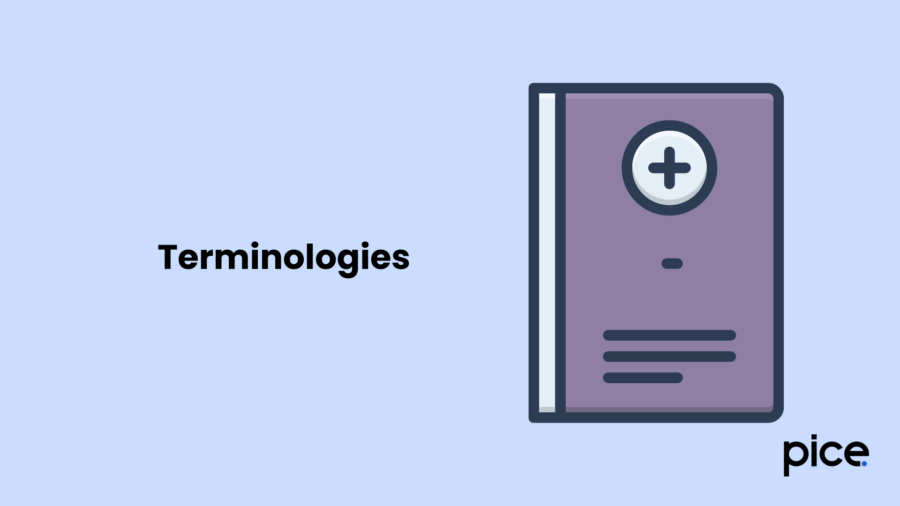
Here are a few terminologies that you must be aware of while understanding TCS on the Sale of Goods:
Buyer
A buyer obtains specified goods through auction, tender, or any business or industrial use method. However, this excludes certain parties, such as:
- Public sector units
- Central or state governments
- Foreign Embassies
- Individuals buying goods for personal consumption
Only those purchasing for commercial purposes fall under this definition. This provides advantages to buyers who purchase for personal or retail use. It also helps determine TCS applicability, especially for large-scale transactions.
In cases like TCS, only qualifying buyers are liable for the collection and sale of scrap under GST. For scrap purchases, buyers must retain proper documentation, including Payment Links and payment modes used, to ensure audit readiness.
Seller
A seller is someone whose turnover exceeds the prescribed limits, which are ₹1 crore for business and ₹50 lakh for profession. They include entities as follows:
- Companies
- Firms
- Cooperative societies
- Central government
- State government
- Corporation
- HUFs
- Local authorities
These sellers must collect TCS when they sell specified goods. This classification ensures that only established and financially capable entities are obligated under the tax rules. For businesses dealing in scrap, this applies under TCS on sale of scrap under GST provisions.
Tax audit procedures will often verify the time of purchase, time of debiting, and corresponding tax payments made on transactions involving scrap.
Scrap
Scrap refers to waste generated during the mechanical or manufacturing process. They are worn-out or broken materials that are no longer usable in their original form. These may include:
- Metal cuttings
- Machine parts
- Worn components
The government mandates TCS collection on scrap sales, as they are revenue-generating transactions. Sellers dealing in scrap must issue a TCS certificate in Form 27EQ, which lists all required tax details. Businesses selling scrap in bulk must understand TCS on the sale of scrap under GST to remain compliant with applicable tax rules and thresholds.
Sellers must ensure that the deduction for scrap is calculated based on the actual generation of power, production process, or residual value of the material.
Items like scrap valves or machine parts may vary in tax treatment depending on their categorisation under rates for scrap material.
Consequences of late filing – Section 271H
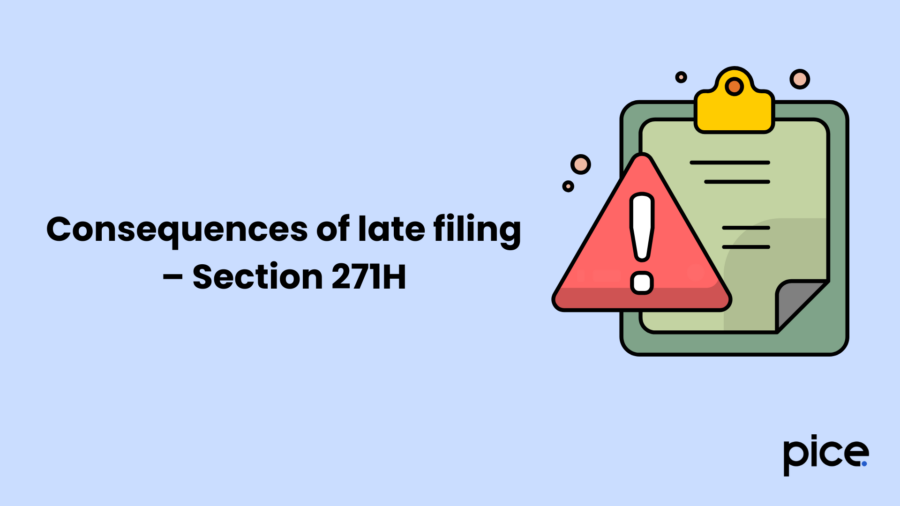
If an organisation or individual fails to do TDS/TCS return filing to the government on time, then they have to pay a penalty under the following conditions:
- A penalty of Rs. 200 per day is charged for every day of default.
- A TDS/TCS return cannot be filed if the penalty has not been deposited.
- The maximum penalty cannot exceed the total amount of TDS/TCS.
Maintaining accurate records, including the prescribed form for tax filing, is essential to avoid unnecessary penalties.
Consequences of non-filing – Section 271H
If an individual fails to file TDS or TCS returns on the collection or deduction of tax at source within the given time, they are open to penalties. A penalty of a minimum of Rs. 10,000 can be imposed, and the penalty amount may extend up to Rs. 1,00,000. The penalty is in addition to the late filing fee.
There are certain cases when no penalty will be imposed if:
- A valid and reasonable cause backs the delay.
- The TDS/TCS amount is deposited with the government.
- Any late fees and interest are also paid to the government.
- The return is filed within one year from the due date.
- The Commissioner of Income Tax approves a waiver or reduction.
Proper trade representation is critical when filing TCS returns to avoid disputes over tax payment jurisdictions.
Conclusion
The sale of scrap includes multiple kinds of leftover material from industrial activities, such as used goods or waste materials, specifically collected for reuse. It is required to collect TCS on sale of scrap under GST regime. Recently, there have been specific exclusions and modifications to the rates under the GST regime.
This also applies to imports of metal scrap, which are subject to separate rules for TCS collection depending on the source and volume.
💡If you want to streamline your invoices and make payments via credit or debit card or UPI, consider using the PICE App. Explore the PICE App today and take your business to new heights.
 By
By 







